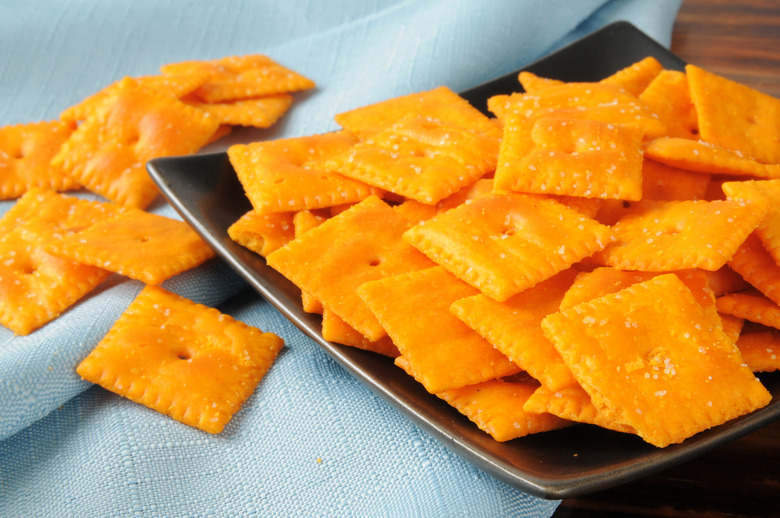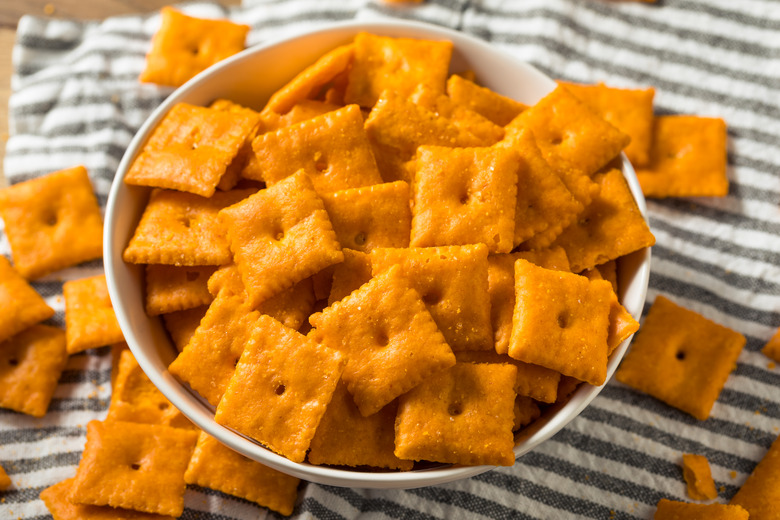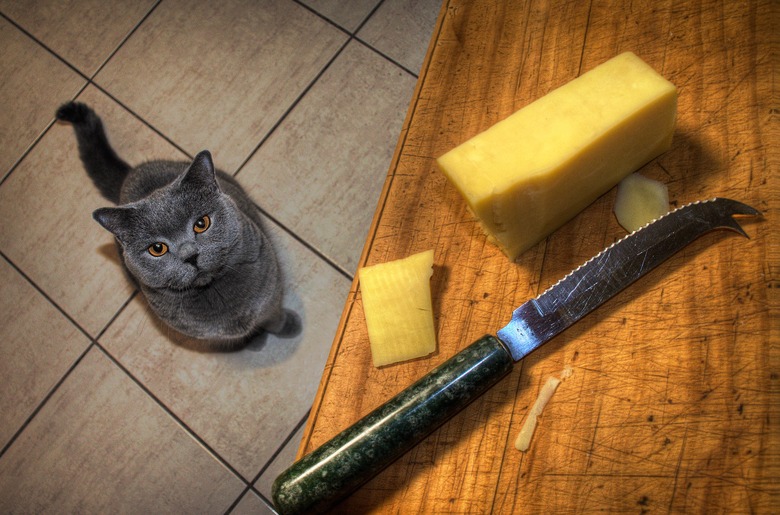Can Cats Eat Cheez-Its?
Is there anything more adorable than feeding your pet a little treat and hearing them crunch away on it? It's hard to resist those cute faces and pleading eyes when you're digging into a snack!
While we might not think much of sharing certain foods with our cats, it's good to consider the ingredients of anything before handing it over. Many cat owners have been amused by their kitties begging for Cheez-Its in particular and want to know if these are indeed safe for feline consumption.
What are Cheez-Its?
What are Cheez-Its?
Cheez-Its are a cheesy, baked cracker snack that have been a staple of lunchboxes and snack time for many years. There are a couple different varieties, but typically they are made with wheat flour, cheese, salt, and flavoring.
Can cats eat Cheez-Its?
Can cats eat Cheez-Its?
Technically, there are no ingredients in Cheez-Its that are toxic to cats. However, many adult cats are lactose-intolerant and milk products such as cheese can upset their stomachs. Most cats' bodies do not produce the enzyme lactase, which breaks down the milk sugar known as lactose in order to make it digestible. Just like humans who are lactose-intolerant, consuming dairy products can cause reactions in cats that range from mild stomach discomfort to vomiting and diarrhea. Though the image of a kitten drinking a saucer of milk is a very common one, cats do not need any dairy in their diets and it can make some of them sick.
Cheez-Its also contain high amounts of sodium and fat that are not ideal for kitty stomachs. While it's generally not harmful for humans to eat salty or fatty foods on occasion, cats have very different digestive systems from us and thus different nutritional needs. As obligate carnivores, cats' diets should consist primarily of meat-based foods and most human snacks should be avoided. There are also some foods that cats should never eat.
What happens if my cat eats a Cheez-It?
What happens if my cat eats a Cheez-It?
If your cat sneaks a Cheez-It from your bowl or you've given one to them before, there's no need to worry. Though most cats cannot digest lactose, an errant Cheez-It won't do any serious damage to their health. While you should avoid giving Cheez-Its to cats with regularity, or as a substitution for cat treats, a single cracker or a small piece of one isn't likely to do any harm. Keep an eye on them to monitor for any signs of vomiting or diarrhea and ensure they have plenty of fresh water— otherwise, you don't need to expect any serious symptoms or place a call to your vet.
Are there any concerns with feeding Cheez-Its to cats?
Are there any concerns with feeding Cheez-Its to cats?
Lactose intolerance is the biggest concern with feeding Cheez-Its to cats, but the sodium and fat levels also make them a less-than-stellar option for sharing with your pet. Cheez-Its do contain vitamins B1 and B2, but not in high enough levels for this to outweigh the potential stomach upset of the other ingredients.
As with any food that is outside of your pet's diet, feeding too many tasty human snacks to pets could cause them to turn their noses up at their regular meals. Cats will gladly indulge in salty, fatty foods if given the opportunity and may develop a preference for those over their normal kibble or wet food. If you've been doling out one too many gourmet snacks, you might find your pet going on a mini hunger strike in hopes of holding out for those treats! If you do notice your kitty skipping meals, cut back on the treats and stick to their regular food for a while until they get back on their normal feeding routine.
In summary
In summary
A small piece of a Cheez-It here and there won't cause any harm to your cat, but it's still best to avoid feeding them these snacks deliberately. Most cats shouldn't eat them as they can't digest dairy, but you can still spoil your little buddy by picking up some treats made specifically for cats or giving them small pieces of real meat here and there.


